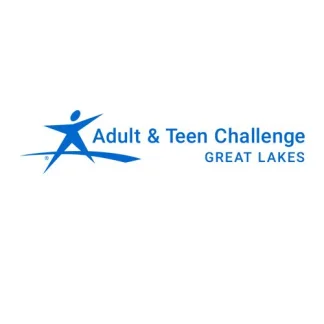Mirror - Holton Outpatient Services
Mirror is a non-profit agency dedicated to provide services to those individuals...
The Great Lakes Men’s Rehab Center of Hope is considered one of the top Adult & Teen Challenge facilities in the United States. The property consists of the Don Wilkerson Memorial Chapel, the Center of Hope Men’s Dorm, the White House Administrative Building, an eight-unit staff housing building, and a full-service vehicle facility.
The Great Lakes Men’s Rehab Center of Hope is considered one of the top Adult & Teen Challenge facilities in the United States.
Great Lakes Men’s Rehab, part of Teen Challenge, focuses on the total person with spiritual, emotional, physical, social, and educational training to prepare them for their new life, post addiction. All aspects of our program are focused on achieving abstinence from alcohol and other drugs, and most importantly, building the foundation to support recovery for a lifetime, including spiritual recovery.
Why choose Great Lakes Men’s Rehab first? Long-term residential recovery programs like Great Lakes Men’s Rehab, part of Great Lakes Adult & Teen Challenge, differ from typical short-term programs you hear so much about. Short-term “revolving door” programs are visited again and again by relapsed addicts, temporarily solving the addiction, but never solving the core of the problem so the addiction comes right back again. So, the addict has to return to rehabs again and again, costing them, their insurance carrier, or their family tens of thousands of dollars each time. Every day, Great Lakes Men’s Rehab enrolls individuals who have previously attended 5, 10, 20, or even 30 costly short-term rehabs, to no avail. They should have come to Great Lakes Men’s Rehab first!
How is Great Lakes Men’s Rehab is different? It is one of the few programs that will dedicate a whole year to work with each addict. That is a huge financial commitment by the organization and community, but it is the time needed in order for the recovery rates to be what they are. The day-to-day structure, community, and faith emphasis over such an extended period of time bring addicts slowly out of wrong and drug-impacted thinking into an awareness of a purpose for their life and a new way of thinking and living. Such a new purpose and way of living is one that has no place for abusing drugs or alcohol; addiction is replaced by self-love, peace, happiness, purpose, and excitement for the future.
Contact us for more information: (414) 748-4357

Connect with Great Lakes Men’s Rehabs by calling their admissions team directly.
(414) 748-4357 Website Get DirectionsResearch clearly demonstrates that recovery is far more successful and sustainable when loved ones like family members participate in rehab and substance abuse treatment. Genetic factors may be at play when it comes to drug and alcohol addiction, as well as mental health issues. Family dynamics often play a critical role in addiction triggers, and if properly educated, family members can be a strong source of support when it comes to rehabilitation.
Group therapy is any therapeutic work that happens in a group (not one-on-one). There are a number of different group therapy modalities, including support groups, experiential therapy, psycho-education, and more. Group therapy involves treatment as well as processing interaction between group members.
In individual therapy, a patient meets one-on-one with a trained psychologist or counselor. Therapy is a pivotal part of effective substance abuse treatment, as it often covers root causes of addiction, including challenges faced by the patient in their social, family, and work/school life.
Life skills trainings involve all the skills a person must have in order to function successfully in the world. These include time management, career guidance, money management, and effective communication. Truly successful addiction recovery is based on the ability to not only live substance-free, but to thrive. Life skills teaches the practical necessities of functioning in society, which sets clients up for success in life, and therefore sobriety.
Group therapy is any therapeutic work that happens in a group (not one-on-one). There are a number of different group therapy modalities, including support groups, experiential therapy, psycho-education, and more. Group therapy involves treatment as well as processing interaction between group members.
In individual therapy, a patient meets one-on-one with a trained psychologist or counselor. Therapy is a pivotal part of effective substance abuse treatment, as it often covers root causes of addiction, including challenges faced by the patient in their social, family, and work/school life.
Life skills trainings involve all the skills a person must have in order to function successfully in the world. These include time management, career guidance, money management, and effective communication. Truly successful addiction recovery is based on the ability to not only live substance-free, but to thrive. Life skills teaches the practical necessities of functioning in society, which sets clients up for success in life, and therefore sobriety.
In individual therapy, a patient meets one-on-one with a trained psychologist or counselor. Therapy is a pivotal part of effective substance abuse treatment, as it often covers root causes of addiction, including challenges faced by the patient in their social, family, and work/school life.
Life skills trainings involve all the skills a person must have in order to function successfully in the world. These include time management, career guidance, money management, and effective communication. Truly successful addiction recovery is based on the ability to not only live substance-free, but to thrive. Life skills teaches the practical necessities of functioning in society, which sets clients up for success in life, and therefore sobriety.
Life skills trainings involve all the skills a person must have in order to function successfully in the world. These include time management, career guidance, money management, and effective communication. Truly successful addiction recovery is based on the ability to not only live substance-free, but to thrive. Life skills teaches the practical necessities of functioning in society, which sets clients up for success in life, and therefore sobriety.
Mirror is a non-profit agency dedicated to provide services to those individuals...